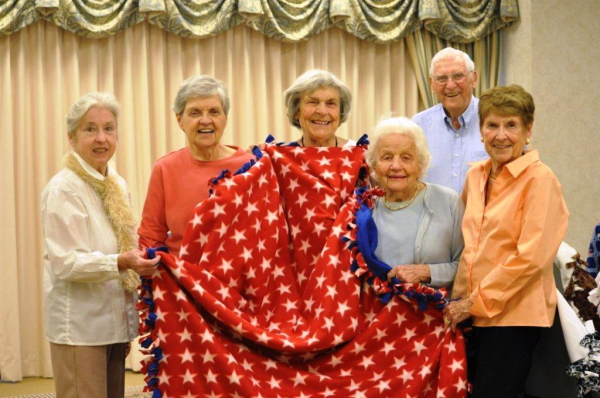
Life after retirement can be some of your best years. If you’re looking for a way to make your golden years even better, consider these 3 ways that older adults are making the most of retirement living.
1. Make Connections
Have you ever wondered what your former classmates have been doing with their lives? Wanted to reconnect with good friends you’ve lost touch with over the years? Why not try going online.
Recent research has shown that older adults make up one of the fastest growing demographics of internet users, and social media applications like Facebook, Youtube, and Twitter can bring instant connectivity to senior living.
With a Facebook account and profile, you can stay up-to-date on the daily goings-on of family, friends, acquaintances, brands and causes across the country and even the world. And with more and more seniors choosing to join social media sites, chances are that you’ll be able to reconnect with at least a few of your old friends online.
YouTube
You’ve probably seen at least one YouTube video in the past few weeks—whether it was a hilarious cat video or a message from one of your grandkids.
YouTube provides a visual medium for telling stories, sharing thoughts, or even engaging in conversation. With a YouTube channel, you can share silly clips or, if you have a webcam, create and upload video messages for friends, family, or anyone else you chose.
This social media site bills itself as “the real-time information network,” and they aren’t wrong.
Twitter connects you with all of the most interesting news, stories, and entertainment in 140 characters or less. If you have an account, you don’t even have to “tweet” yourself. You can follow friends and family to stay up-to-date on all the latest goings-on, or follow other users that you find interesting.
2. Take Lessons
A commitment to lifelong learning can help keep your mind sharp and your spirit young.
Brush up your language skills.
The idea that adults, and older adults in particular, are unable to learn new languages is predicated on outdated theories of language acquisition and baseless ageist stereotypes. In fact, some older adults are able to grasp new language even better than children are, and research has shown that learning a new language can help fight Alzheimer’s and other forms of cognitive decline.
Learn to play an instrument.
Music is one of the most powerful forms of expression available, able to transcend gender, culture, and age. It has a number of proven health benefits for senior living. When you actively work with music, you enhance your brain's ability to adapt and change as you age says research from Northwestern University. Even the simple act of enjoying a good song can have a positive impact on your health, reducing stress and improving your outlook on life.
3. Travel More
The idea of “getting away from it all” isn’t confined to Americans still working the nine-to-five grind. Diving, however briefly, into another lifestyle offers the kind of experience that enriches life at any age. Not only does travel bring some much needed R&R into senior living—work isn’t the only stress in life—it’s also a great way to deepen your appreciation of life and your loved ones.
Gather your children or a group of good friends and take that dream trip you’ve been planning for so long.
- AARP has planning tips and other helpful hints to help you plan an amazing cruise.
- Seniors looking for a European getaway can check out Pauline Frommer’s advice for older travelers to find guided tours tailored to their interests and abilities.
- The humanitarians among our readers should look into “voluntourism” to see the many ways you can incorporate volunteerism into their vacation plans.
Just make sure you brush up on your travel etiquette before you hit the road.











